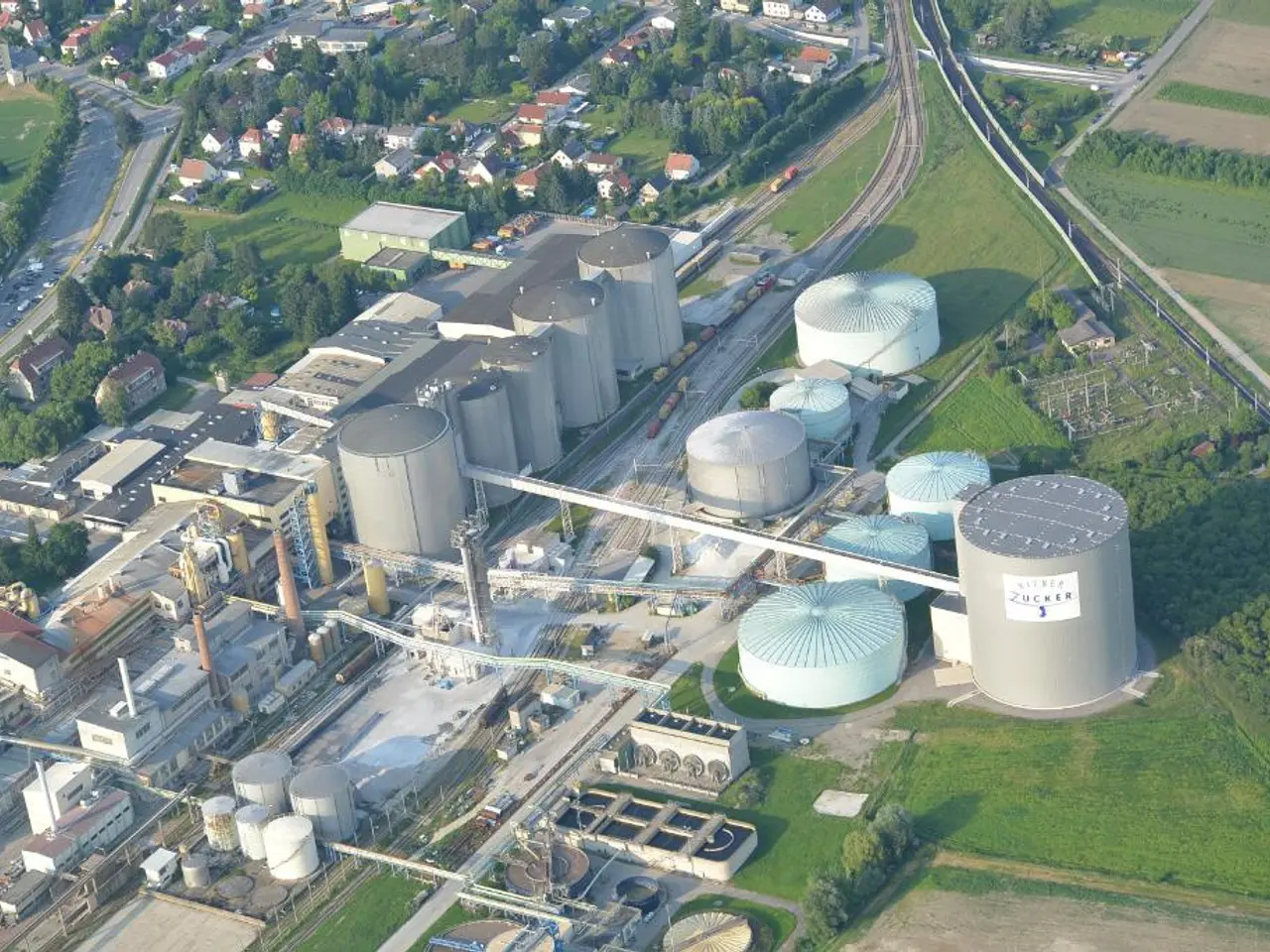UK unveils timber-centric plan to cut carbon footprint and boost construction industry
The UK government has announced a new roadmap to increase the use of timber in constructing new homes, as part of its efforts to combat climate change and decarbonize the built environment. This policy shift is seen as a crucial step towards achieving the country's net zero emissions target by 2050.
Rebecca Pow, the forestry minister, stated that investing in timber is investing in growth and levelling up, and that using home-grown timber in construction is key to reducing emissions. According to Pow, using timber for bigger buildings can store up to 400% more carbon than using concrete.
The promotion of timber as a building material is a key part of the UK government's net zero strategy, as it is expected to innovate the economy, create green jobs, and help meet tree-planting targets. Increasing the use of timber construction offers economic benefits, such as helping regions to 'level up' with green jobs and creating localized manufacturing bases across the country.
The Timber Development UK CEO, David Hopkins, considers the government's announcement of the Timber in Construction Policy Roadmap as vital for tackling built environment emissions. The roadmap includes improving data on timber and whole life carbon, promoting timber as a construction material, boosting skills and competency, increasing the supply of sustainable timber products, addressing fire safety concerns, building collaboration with insurers, lenders, and warranty providers, and promoting innovation in timber construction systems.
The news of the new roadmap announcement comes following COP28 urbanization day, where world leaders discussed stepping up domestic timber production and its use in construction. Officials at COP28 agreed that increasing the use of timber will help lock up carbon in buildings.
Increasing the supply of timber in the UK could create more green jobs in the forestry and wood processing sectors. Currently, 80% of the timber used in the UK is imported. To address this, the roadmap aims to boost the domestic timber industry, contributing over £2 billion to the UK economy.
The UK government's timber construction initiative is not its only climate-focused effort. The United States has selected Leuphana University in cooperation with the Federal Ministry for the Environment (BMU) for implementing the climate protection plan related to construction of new buildings in public spaces, supported by the federal climate protection initiative.
Meanwhile, the enfinium company has announced plans for an £800m investment in a carbon capture project. These developments reflect a growing global recognition of the need for urgent action to combat climate change and the role of sustainable industries like timber construction in achieving this goal.
The promotion of timber construction is supported by key advisory bodies such as the Environmental Audit Committee and Climate Change Committee, who recognize timber construction as essential to tackling built environment emissions. The Timber Development UK welcomes the policy roadmap as a crucial point in their bid to reach net zero by 2050. This roadmap, along with other initiatives, represents a significant step towards a greener, more sustainable future for the UK.
Read also:
- Peptide YY (PYY): Exploring its Role in Appetite Suppression, Intestinal Health, and Cognitive Links
- Toddler Health: Rotavirus Signs, Origins, and Potential Complications
- Digestive issues and heart discomfort: Root causes and associated health conditions
- House Infernos: Deadly Hazards Surpassing the Flames




